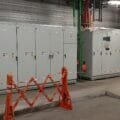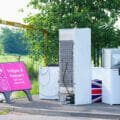Jungian colour theory defines personality types as four possible temperaments: Cool Blue, Earth Green, Sunshine Yellow and Fiery Red. The types are determined based on the moods, energy and communication preferences of an individual, and subsequently how that individual communicates and behaves. What does this have to do with engineering I hear you ask? Martyn Williams, managing director of COPA-DATA UK examines how business leaders can use personality theory in their businesses to improve manufacturing performance.
Developed by Swiss psychologist Carl Jung, and based on the work of Hippocrates, colour theory is certainly not a new concept. In many office environments, employees will have undergone some kind of exercise to determine their personality type — whether that’s DISC profiling, Myers-Briggs or based on the Belbin Team Inventory. It’s also fairly standard practice for marketing teams to use similar tests when developing the branding of a business itself. However, the practice isn’t as common in the manufacturing realm.
In manufacturing, it is second nature to focus on the metrics — productivity, downtime, efficiency and profit. What often isn’t considered are the individual personalities that affect these outputs. Before diving into the application of colour theory in industry, let’s explain the personality types.
Defining personality types
When you think of a stereotypical engineer, you might immediately categorise them as a Cool Blue. Process-centric with a keen attention to detail, these workers are cautious and thoughtful. They are deliberate in their actions and prefer working in formal structures.
Earth Greens are more people-focused. They are empathetic, patient and compassionate team players, but they often go unheard in environments where more dominant personality types are at play. Their ultimate goal is to achieve harmony in a group.
As the name suggests, Sunshine Yellow defines your organisation’s extroverts. They value socialising and interacting with others and as a result of their likeability, they can be inspiring leaders. Their downfall is their spontaneity, which can lead to distraction and disorganisation.
Lastly, Fiery Reds. This personality type is action driven and enjoys a challenge. They are often competitive, confident and laser focused on the end result. Occasionally, this can be to the detriment of their patience with teammates.
It is worth noting that it’s highly unlikely for an individual to fit just one of these types. A person would typically sit between two or maybe even three personalities, demonstrating different elements of each depending on the environment they are in. For instance, you might be a Fiery Red while leading a team under a deadline, but a Cool Blue when analysing your businesses financial data at year end.
Colour theory isn’t an exact science, but understanding these personalities can be a powerful tool for manufacturers to use. Not only can understanding personality types improve harmony among colleagues, but can help your organisation identify areas of opportunity and determine what energies might be missing.
Bridging the gap
Firstly, you need to understand what colour and energy your business culture currently leans towards. Are you too highly focused on data analysis and therefore overlooking potential opportunities of innovation from Sunshine Yellow thinkers? Are your teams slow at making decisions because they are lacking Fiery Red energy? If you’re already running a manufacturing business, the likelihood is your missing energies are already screaming out to you.
Any business leader will know that recruiting to find these missing personalities isn’t a feasible strategy. In fact, as I alluded to earlier, many engineers will fall into the same personality category, making complete diversification of a manufacturing business a difficult task.
Thankfully, there are technologies that can bridge this culture gap. COPA-DATA’s zenon software platform automates data collection across a manufacturing landscape. Visualising everything from overall equipment effectiveness (OEE), downtime, waste and output, the platform removes the need for longwinded data analysis and provides the team with real-time insight into a factory’s performance and opportunities.
It also alleviates any impatience for results because plant data is visualised in real-time. This provides insights to spot opportunities for innovation. Does the data show that an area of production is idle and could enable small-scale customised manufacturing? That’s an opportunity for Yellow to shine.
Automating data capture and analysis can also provide space for a team’s individuals to focus on the energies they are lacking. This might see Fiery Reds leaning into Earth Green to mentor colleagues to help them hit targets, or Sunshine Yellows embracing Cool Blue behaviour by gathering actionable insights from that visualised data.
In an industry laser focused on metrics, leaning into personality theory can feel unimportant, but I disagree. Driving success in any business means understanding its people. After all, an organisation is only as good as its team, and that team is only as good as its behaviours, actions and attitudes — and the technology we can use to bridge any gaps.








